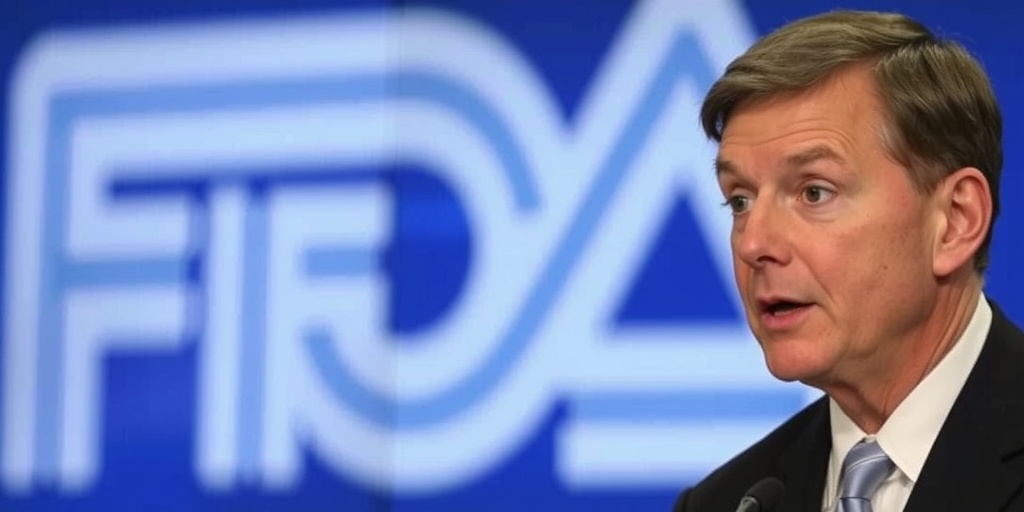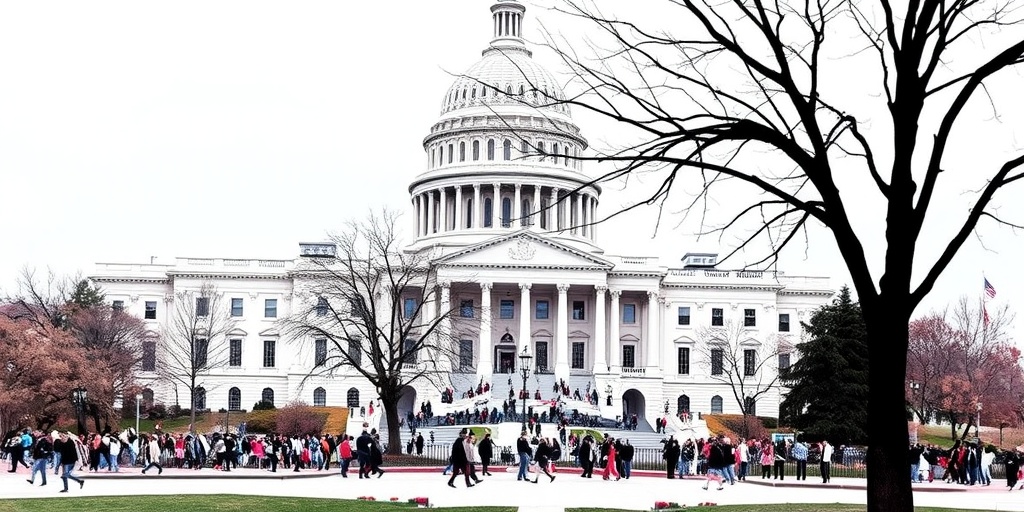Now Reading: Anti-Abortion Lawyer Ousted from FDA Following Republican Senator’s Pressure
-
01
Anti-Abortion Lawyer Ousted from FDA Following Republican Senator’s Pressure
Anti-Abortion Lawyer Ousted from FDA Following Republican Senator’s Pressure

Title: Ouster of FDA Chief Counsel Highlights Ongoing Tensions in Legal Landscape
Since 2019, Hilary Perkins has been a dedicated civil servant, serving as a career lawyer for the government and upholding a fundamental principle of her position: to advocate for the administration’s positions, regardless of the political affiliations of the leaders she served. Initially hired under President Donald Trump, she notably defended the availability of the abortion pill, mifepristone, under President Joe Biden. However, her career took a sudden turn last week when she resigned just three days after being appointed chief counsel of the Food and Drug Administration (FDA). Reports indicate that her resignation was the result of mounting pressure from Senator Josh Hawley, a Republican from Missouri.
Senator Hawley ignited controversy when he voiced his objections to Ms. Perkins on social media, accusing her of being a pro-abortion advocate due to her legal work under the Biden administration. “This Biden lawyer has argued for Biden’s outrageous pro-abortion rules in many cases,” he stated in his posts, omitting crucial details about her broader career. Notably, he failed to mention that Perkins had rendered legal opinions on the opposite side of a case involving his wife, Erin Hawley, who had taken a legal stance against the abortion pill to the Supreme Court. Furthermore, in previous instances, Perkins had worked to maintain restrictions on mifepristone’s availability.
This incident underscores a disturbing trend within the federal government, where civil servant attorneys are increasingly being purged. Current and former Justice Department lawyers voiced concerns that Perkins’ ouster is indicative of a larger battle that is undermining the integrity and effectiveness of legal representation within the department during pivotal legal battles. As tensions rise over controversial issues like abortion rights, the environment within the Justice Department has become increasingly hostile, particularly for attorneys who must navigate the political winds of the administration.
In response to the accusations, Perkins defended her reputation to The New York Times. “Senator Hawley’s accusations against me are false,” she said. “I am not who he says I am. I am a Christian who is both conservative and pro-life and who simply followed my oath as a Department of Justice career attorney. He should be fighting for me, not against me.” She emphasized that her duty as a career attorney is to represent the government’s legal positions, a role she undertook with professionalism irrespective of her personal beliefs.
Hawley didn’t stop at attacking Perkins’ prior association with the abortion pill; he also criticized her involvement with vaccine mandates, further complicating the narrative surrounding her career. After realizing that her continued presence could jeopardize the nomination of Dr. Marty Makary as the new FDA commissioner, Perkins reluctantly decided to resign. This sequence of events reveals a troubling reality where legal careers are increasingly subjected to the pressures of political maneuvering, often leading to the erosion of civil service integrity.
Perkins’ ouster brings into focus the vital aspect of duty expected from Justice Department lawyers—an obligation to advocate for government positions as directed by their superiors. This notion was encapsulated in a memo issued by Attorney General Pam Bondi, which implied that failure to comply with orders could result in dismissal. Ironically, Hawley’s campaign against Perkins contradicts this foundational principle guiding Justice Department attorneys.
Within the broader context of the Justice Department during the Trump era, an alarming pattern has emerged where numerous senior attorneys have faced demotions, firings, or forced resignations as the administration sought to consolidate its control. Bondi and other administration officials claimed these actions were necessary to address what they termed the “weaponization” of legal processes. Critics, however, argue that such moves compromise the department’s effectiveness by stripping away invaluable experience and expertise that cannot be easily replaced.
Perkins left her position at the Justice Department to take on the role of chief counsel at the FDA, which would have placed her at the helm of important legal matters, especially regarding abortion and healthcare policies. Tim Goeglein, a representative from the anti-abortion group Focus on the Family, expressed concern that time was running out to appoint someone aligned with pro-life values to the FDA. “I have only known Hilary Perkins to be categorically and reliably pro-life,” he remarked.
Notable figures within the legal community, including former Trump solicitor general Noel Francisco, lauded Perkins for her commitment to advancing clients’ interests rather than her personal viewpoints. Her legal acumen was previously demonstrated in her representation of former Virginia Governor Bob McDonnell in a corruption case that ultimately resulted in a Supreme Court ruling in his favor.
Despite the pressure exerted by Senator Hawley, the intricate dynamics of the legal landscape surrounding mifepristone cases highlight the complex interplay of advocacy and legal representation. Perkins had contested various legal opinions on the abortion pill, including supporting in-person prescription requirements while also overseeing arguments against additional restrictions. Moreover, she had previously supervised a consequential Supreme Court case that ruled in favor of the Biden administration regarding mifepristone availability.
As Senator Hawley consistently criticized Perkins, apprehensions grew among Trump administration officials about potential repercussions for Dr. Makary’s nomination. Just before a pivotal Senate committee vote on the nomination, it was conveyed that Hawley would oppose Makary unless Perkins left the agency. Ultimately, after her resignation, Hawley indicated he would support Dr. Makary’s nomination during the Senate hearing.
In conclusion, while Dr. Makary received necessary backing, the conversations and actions leading to Perkins’ resignation illustrate a larger struggle within the federal government. Perkins’ commitment to her role and her subsequent exit raise crucial questions about the balance between political pressure and legal objectivity in the public service sector. As the administration navigates contentious legal waters, the departure of experienced attorneys like Perkins signals concern over the future integrity of the legal framework within which the government operates.
Stay Informed With the Latest & Most Important News
Previous Post
Next Post
Previous Post
Next Post
-
 01New technology breakthrough has everyone talking right now
01New technology breakthrough has everyone talking right now -
 02Unbelievable life hack everyone needs to try today
02Unbelievable life hack everyone needs to try today -
 03Fascinating discovery found buried deep beneath the ocean
03Fascinating discovery found buried deep beneath the ocean -
 04Man invents genius device that solves everyday problems
04Man invents genius device that solves everyday problems -
 05Shocking discovery that changes what we know forever
05Shocking discovery that changes what we know forever -
 06Internet goes wild over celebrity’s unexpected fashion choice
06Internet goes wild over celebrity’s unexpected fashion choice -
 07Rare animal sighting stuns scientists and wildlife lovers
07Rare animal sighting stuns scientists and wildlife lovers





















